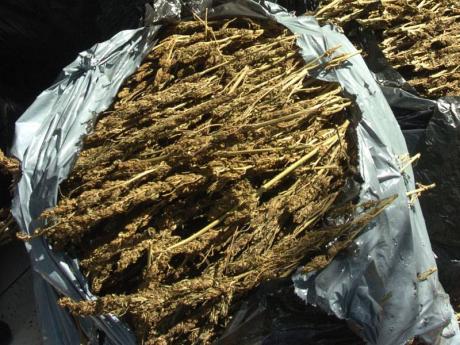It's time to decriminalise ganja
1. Unlike alcohol and tobacco which are legal substances, ganja is illegal in Jamaica. Under the Dangerous Drugs Act, any person who possesses or uses ganja is guilty of an offence and, on convection, shall be sentenced to a fine or imprisonment, or both.
In addition, this person has a criminal record. The sale, purchase, possession, cultivation, trafficking and exportation of ganja are illegal in Jamaica. I am not calling for the use of ganja to be made legal in Jamaica; what I am calling for is the decriminalisation of ganja.
2. What is decriminalisation? Decriminalisation is the removal, reduction or the non-enforcement of penalties. We are calling for the decriminalisation of ganja for private personal use, medicinal and religious purposes. Technically, this occurs in Jamaica as persons are rarely charged for private, personal use in their homes or if they use ganja for medicinal purposes. Groups that use the drug as part of their religious sacrament are not charged.
The penalty should fit the crime, and the current penalties for ganja use are too excessive.
3. It, therefore, means that the following should attract civil penalties: sale of the drug to minors and smoking in public spaces. The sale of large quantities, cultivation, trafficking and export would still be criminal acts.
4. Note: I am not suggesting that ganja is not harmful; it is. Smoking anything is harmful, whether it is tobacco or ganja. Many people think that the smoking of ganja is less harmful than tobacco. Ganja has far more cancer-causing chemicals than tobacco and can, therefore, lead to lung cancer. Furthermore, the smoking of ganja or tobacco in public exposes persons who do not smoke to the risk of developing cancer. I, therefore, support a ban on smoking in public, and fortunately for us, that law should be coming soon in Jamaica.
Ganja is also associated with mental illness and it may affect thinking, memory and other cognitive functions in young people.
5. Does decriminalisation result in increased use? In places where ganja has been decriminalised, there has not been an increase in use. In Jamaica, the law against ganja use is rarely enforced, and yet we do not have the highest rate of use of ganja in the Caribbean. Antigua, Dominica, Grenada, St Kitts, St Lucia and St Vincent are countries that report higher rates of ganja use among young people.
6. Apart from supporting decriminalisation of ganja, I think it is important for us to step up on our drug-prevention programmes and to ensure that the youth are fully aware of the harmful effects of ganja.
7. At the same time, I do not think we will be able to decriminalise ganja in Jamaica. Jamaica is listed as a drug-transit country and also a drug-producing country. The USA has a certification process in place which requires that drug transit and drug-producing countries cooperate with the US counternarcotic efforts and that these countries should implement counternarcotic measures. Failure to do so would result in the country not being certified and not being entitled to aid from the USA.
Additionally, the USA would not support these countries in their bid to borrow money from international organisations. Jamaica is indebted and highly dependent on the USA. It is unlikely that we would do anything to jeopardise our relationship with the USA at this time.
Dr Wendel Abel is a consultant psychiatrist and head, Section of Psychiatry, Department of Community Health and Psychiatry, University of the West Indies; email: yourhealth@gleanerjm.com.

